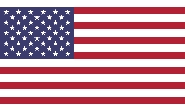Government/Policy

March 27, 2019
Mill Execs: "Now's Not the Time to Blink" on Tariffs or Quotas
Written by Sandy Williams
Much attention has been given to opponents of the Section 232 tariffs, but there are those who support keeping the tariffs even after a new North American trade agreement is approved.
The American Line Pipe Producers Association, makers of large-diameter welded pipe, urged the administration to continue the tariffs on LDWP imports from Canada and Mexico. The association alleges that both countries continue to engage in trade-distorting practices.
“It is imperative that Section 232 tariff relief be maintained on both Canada and Mexico in order to uphold the president’s goal of increasing U.S. steel capacity, including domestic LDWP capacity, to support U.S. national security needs,” stated ALPPA in a press release. “The failure to do so will directly undermine LDWP production in the United States and increases the possibility of Canada and Mexico becoming platforms for circumvention by China and other countries.”
If removal of the tariffs is necessary, they should be replaced by quotas, said ALPPA. The quotas should be set “well below the 2016 to 2018 average volumes for U.S. imports from Canada, [as] any quota set at historic levels would improperly reward Canada for its surge of LDWP imports at dumped prices.”
ALPPA’s statement on Tuesday coincided with meetings of both the Congressional Steel Caucus and the Organization for Economic Cooperation and Development Steel Committee. Discussions at OECD leaned toward global cooperation to address overcapacity and steel subsidies, as well as concern about the dramatic proliferation of trade restrictive measures. Not quite what was proffered at the Congressional Steel Caucus.
“Now is not the time to blink,” said U.S. Steel CEO David Burritt in remarks to the Caucus on Tuesday. “The Section 232 must continue to be applied to all steel producing countries, especially the top import sources — whether that is a tariff or hard quota. Even our best allies and their steel producers have been found to dump and subsidize steel imports into the USA, and they can be conduits for foreign steel from China, Russia and elsewhere. If the Section 232 doesn’t apply everywhere, it’s nowhere as border leaks will continue from excess capacity,” he said.
Burritt said global discussions on steel capacity aren’t effective. “The really bad actor is China, but other countries are complicit knowingly or unknowingly,” Burritt told the panel. “So, oftentimes, people say ‘Build a coalition, get everybody together.’ It has not worked for decades. So, you need a little bit of a carrot, a little bit of a stick, and this is what the 232 does — it’s bringing people together to actually come up with a solution.”
CEOs from Nucor and ArcelorMittal USA agreed with Burritt.
“Doomsday predictions about the tariffs have failed to materialize,” said Nucor CEO John Ferriola. “Just look at the statistics — last year was one of the best for U.S. manufacturing in a long time.”
ArcelorMittal CEO John Brett said he would “support replacing Section 232 tariffs on Canada and Mexico with quotas,” adding that “implementing a melted and poured provision could be one way to address circumvention concerns.”
Zekelman Industries said it is back to producing at 2008 capacity and is struggling to find enough workers to fill capacity needs—”a good problem to have.”
Tony Frabotta, vice president of finance at Zekelman Industries, alleged Canada is not doing enough to keep China from circumventing the Section 232 tariffs.
“As long as it is made and melted in Canada and shipped in, we are fine with that,” said Frobetta, adding that Canada “has not taken our Section 232 here in the states as serious as it should.
“Our fear is that they are not going to block China and other bad actors from distributing product into Canada, which could funnel its way into the United States,” he said.







